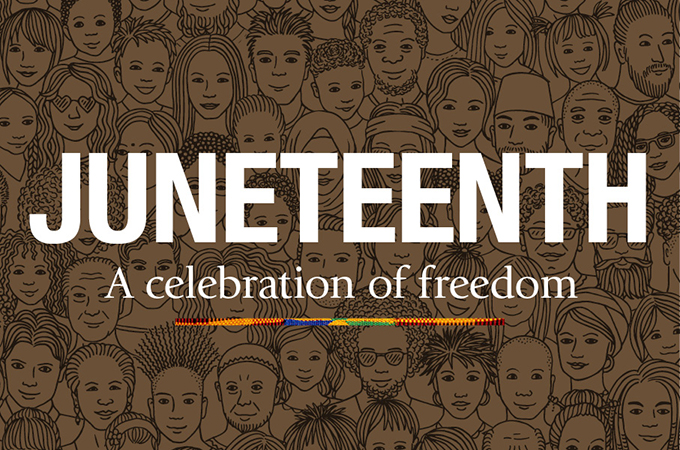What is Juneteenth and why is there a movement to recognize it as a national holiday? The Bulldog Blog talked with Interim Director of Diversity Initiatives Monique Stennis about the event’s history and why, after 155 years, it remains relevant.
Bulldog Blog: What is Juneteenth?
Monique Stennis: Many people are unaware of Juneteenth, but it carries a lot of importance. It’s a celebration of the date—June 19, 1865—that the union soldiers enforced the Emancipation Proclamation, freeing all remaining slaves in Galveston, Texas. Texas was the last state, following the end of the Civil War, to allow enslavement. While rumors of freedom were widespread, the actual emancipation was not announced in Texas until a general order was issued almost two and half years after President Abraham Lincoln signed the Emancipation Proclamation. In essence, Juneteenth marks the abolition of slavery.
Bulldog Blog: Juneteenth has always been an important anniversary, but why is it especially relevant today?
Stennis: As an African American woman, I think Juneteenth should be celebrated with the same significance as the Fourth of July, because that is the day my ancestors were freed from slavery. When we look at what’s going on with the Black Lives Matter movement, it’s important to look back at history and see what has not been done well. Part of that process is reconciling the fact that we haven’t recognized Juneteenth as a federal holiday. In the context of what’s happening in our nation currently, Juneteenth is especially important.
Many African Americans are unaware of Juneteenth. As an educational institution, we should educate our community about the rich history of Juneteenth. I’m aware of it because my mother was from Texas and my father was from Mississippi—I’ve noticed that the people who have roots in southern states are much more aware of the history of Juneteenth, which is also called Freedom Day and Liberation Day.
Bulldog Blog: Do all states observe Juneteenth?
Stennis: Right now, Juneteenth is only recognized in 47 states. It’s my understanding that there are three states—Hawaii, North Dakota, and South Dakota—that currently don’t recognize this holiday and that there is legislation drafted to federally recognize Juneteenth.
Bulldog Blog: I’ve seen a few petitions and other calls to make Juneteenth a federal holiday. What would that mean to you?
Stennis: Recognizing it as a national holiday would mean we’re ready, as a country, to really talk about the history that we might not be proud of—the fact that people were brought from Africa, enslaved, to help build this country and that freedom had to come from that. If anyone is part of an affinity group or organization, I encourage them to help push toward getting Juneteenth to be recognized as a federal holiday. There’s a woman named Ms. Opal, who is close to 90 years old, who has been participating in a walk for years trying to gain support in making this happen.
Bulldog Blog: How are you celebrating Juneteenth this year?
Stennis: This year I’m doing something a little different. Usually, in my household, we reflect on significance of Juneteenth and talk about it. But this year, I’m taking the conversation out of my household to talk about it with as many people as I can. University Dean of Student Affairs Donna Eddleman is going to kick off our virtual Connections Day this Friday by recognizing Juneteenth, and I will be talking to students and having extended conversations, encouraging people to contact their state officials to urge Congress to pass legislation—which was originally written by Senator Kay Bailey Hutchison of Texas in 2012—to recognize Juneteenth as a national holiday.
Bulldog Blog: How can people support Juneteenth and other diversity and inclusion programming?
Stennis: People can support diversity and inclusion programming financially by making a gift with the designation to campus diversity and inclusion. Outside the U of R, I recommend learning more about and supporting the National Juneteenth organization.
Learn more about Campus Diversity and Inclusion at the University of Redlands.






